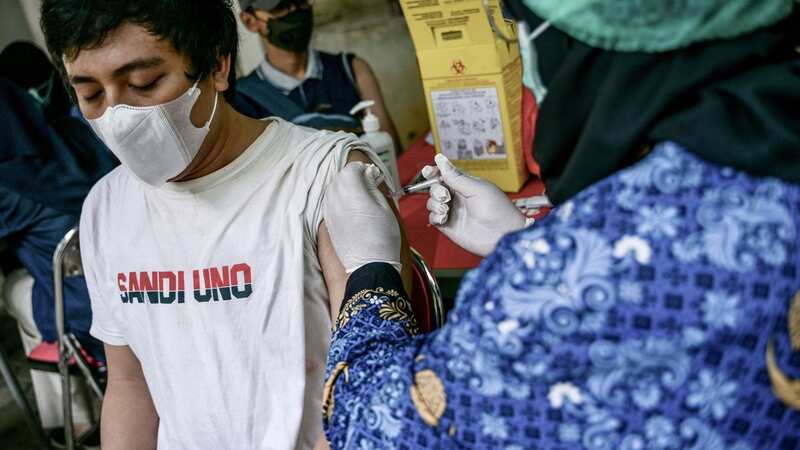New Covid strain monitored by WHO over 'rapidly increasing spread'

A Covid sub-variant of the Omicron strain that wreaked havoc last year is rampaging across the planet with the World Health Organisation monitoring the situation.
Known as JN.1, it has so far been found in 41 countries across the globe, with the most cases found in France, the USA, Singapore, Canada, the UK and Sweden. It was first detected in August and has rapidly increased. Between October 30 and November 5 its global prevalence was 3.3 per cent and latest figures put it at 27.1 per cent. Despite this, the WHO says its health risk to the general public is currently low although some countries have been urged to monitor cases the winter period.
The WHO said in a report on the strain: “It is anticipated this variant may cause an increase in SARS-CoV-2 cases amid surge of infections of other viral and bacterial infections, especially in countries entering the winter season. Following discussions with the WHO Technical Advisory Group for Virus Evolution (TAG-VE) and considering the data at hand, current population immunity globally as well as immunity generated by XBB.1.5 booster vaccination is expected to remain cross-reactive to this variant, against symptomatic and severe disease.
"Therefore, the spread of this variant will unlikely increase the burden on national public health systems compared to other Omicron sublineages. However, countries approaching the winter season should be aware that, altogether, SARS-CoV-2 and co-circulating pathogens may exacerbate the respiratory disease burden. Considering the available, yet limited evidence, the additional public health risk posed by JN.1 is currently evaluated as low at the global level.”
It comes as scientists are worried people will be forced to use out-of-date lateral flow tests, which become a lot less reliable when the buffer liquid evaporates, impacting effectiveness. As cases of the new JN.1 subvariant are surging across the UK, experts are concerned that nearly all given out before April 2022 are now close to expiration after the government halted the free-kit handouts.
 Nursery apologises after child with Down's syndrome ‘treated less favourably’
Nursery apologises after child with Down's syndrome ‘treated less favourably’
Professor Lawrence Young of Warwick University testing materials will be compromised over time and is likely to affect the performance and results. He said: “I suspect many people will have stockpiled lateral flow kits while they were freely available. Most of these will now be out of date.
“It’s important people check the expiry date on their lateral flow kits as out-of-date tests are unreliable. This means you can’t be sure a negative test result means you’re really not positive for Covid infection - given the cost of lateral flow kits and current cost of living crisis, it is very likely people will be using these old and inaccurate tests."
Read more similar news:
Comments:
comments powered by Disqus

































